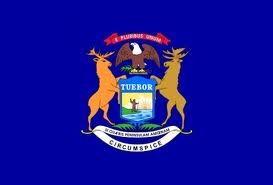Resources for Michigan Local Government Officials
 The passage of the Township Rural Zoning Act of 1943 and the Township Ordinance Act of 1945 marked the beginning of an era in which township governments in Michigan assumed both the legal capacity and primary responsibility to contribute to the quality of life within their respective communities. These landmark laws authorized Michigan’s 1,242 township governments to enact local zoning and police power ordinances that regulate land use and development as well as to provide for the protection of natural resources and the health, safety and general welfare of local citizens.
The passage of the Township Rural Zoning Act of 1943 and the Township Ordinance Act of 1945 marked the beginning of an era in which township governments in Michigan assumed both the legal capacity and primary responsibility to contribute to the quality of life within their respective communities. These landmark laws authorized Michigan’s 1,242 township governments to enact local zoning and police power ordinances that regulate land use and development as well as to provide for the protection of natural resources and the health, safety and general welfare of local citizens.
The Michigan legislature has since enacted additional laws that authorize and enable township governments to pursue protection and improvement of inland lakes within their geographic boundaries by enacting Special Assessment Districts. Public Act 188 of 1954, Public Improvements; and Part 309, Inland Lake Improvements, of Public Act 451, Natural Resources and Environmental Protection Act of 1994, define specific legal and administrative procedures for the establishment of special tax assessments to generate revenue with which to fund specific inland lake improvement projects.
These and other laws, including the Michigan Zoning Enabling Act of 2006, which updated and codified various statewide zoning methods and procedures, provide township officials with court tested authority to enact ordinances and regulations designed to protect the freshwater ecosystems within their respective jurisdictions.
In the landmark Michigan Supreme Court case Hess v West Bloomfield Township, 439 Mich 550 (1992), the high court reaffirmed the legal authority of local governments, including townships, to pass ordinances and regulations pertaining to the protection of inland water resources. The majority opinion stated that “the purpose of the Township Rural Zoning Act (TRZA) of 1943 is to allow townships to balance the most advantageous uses of the lands, resources and properties within their boundaries and to create zoning districts and ordinances in accordance with such evaluations. Review of the historical development of the TRZA indicates the Legislature intended the regulatory authority possessed by the townships to encompass more than activities which are located on “dry land”.
Michigan Lakes and Streams Association remains committed to the idea that townships and other local units of government should be at the epicenter of our collective efforts to preserve and protect the inland lakes, streams and wetlands as well as other valuable natural resources that are so important to Michigan’s future.
Links to other valuable information sources for local government officials:
